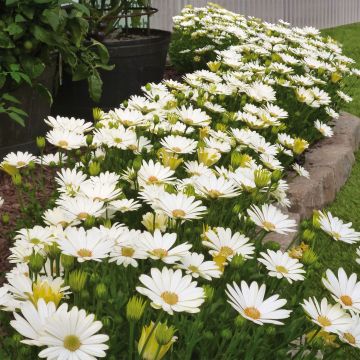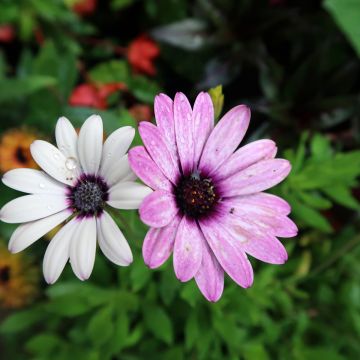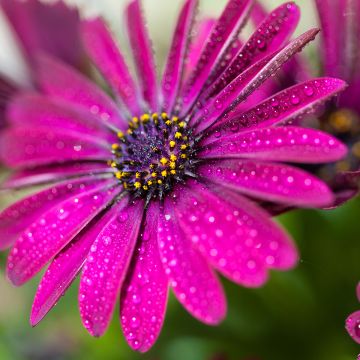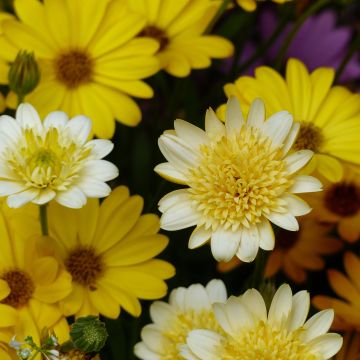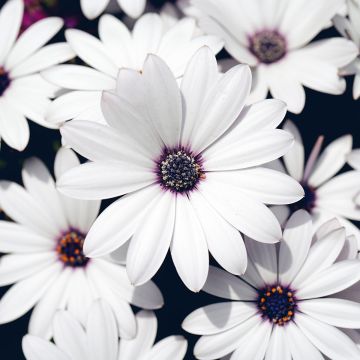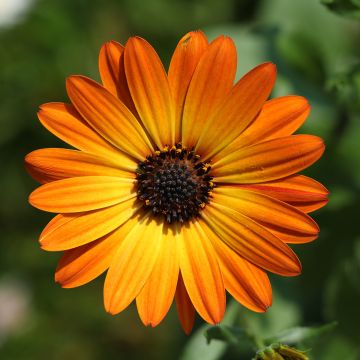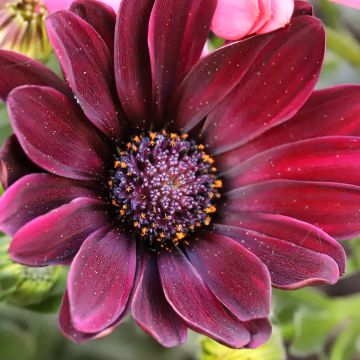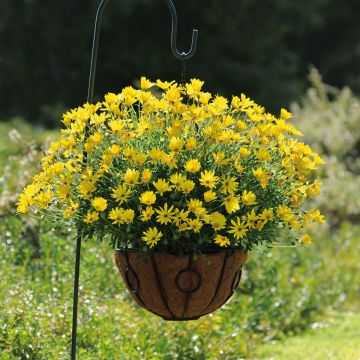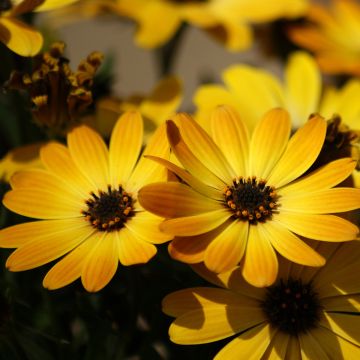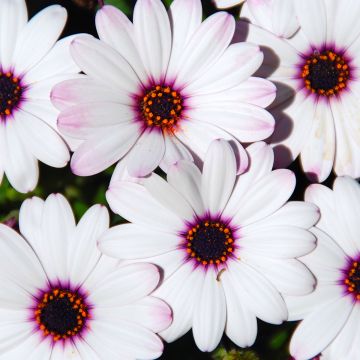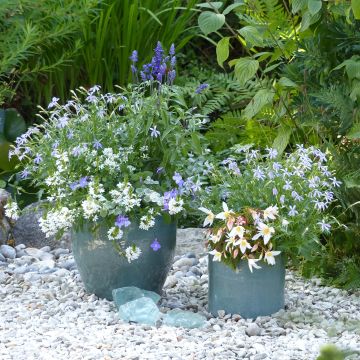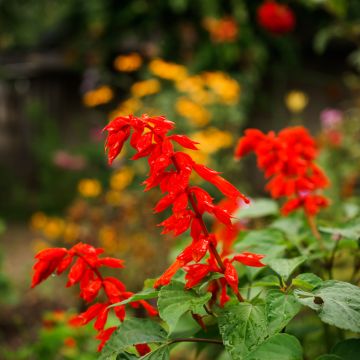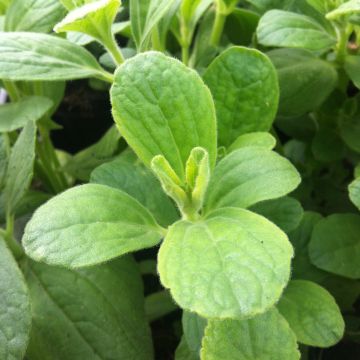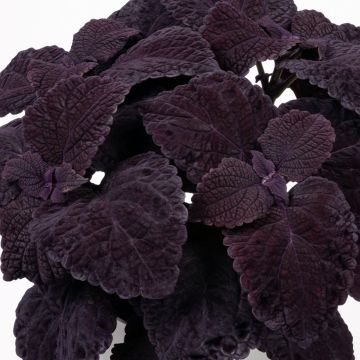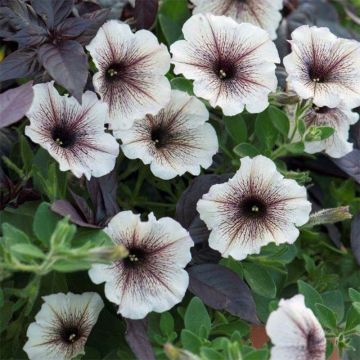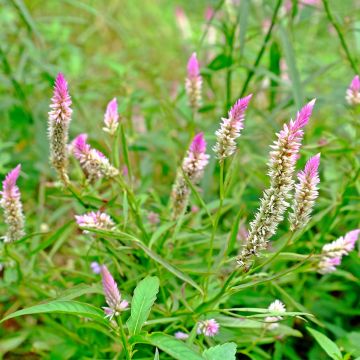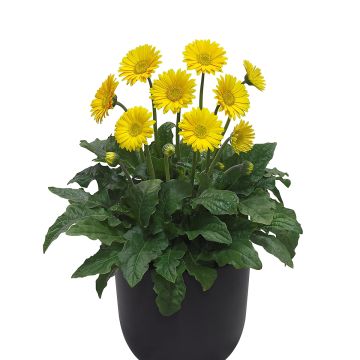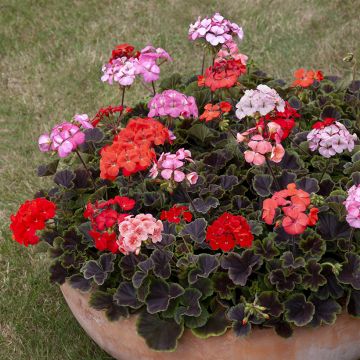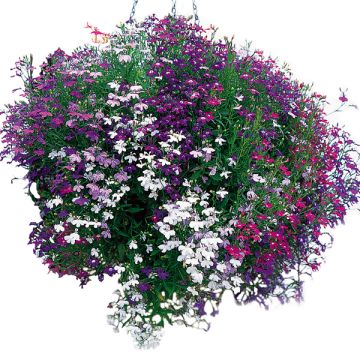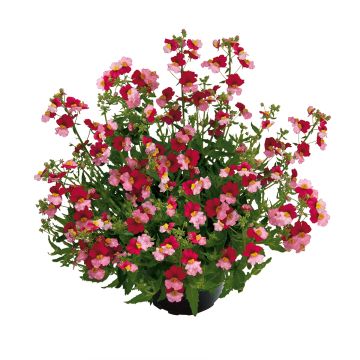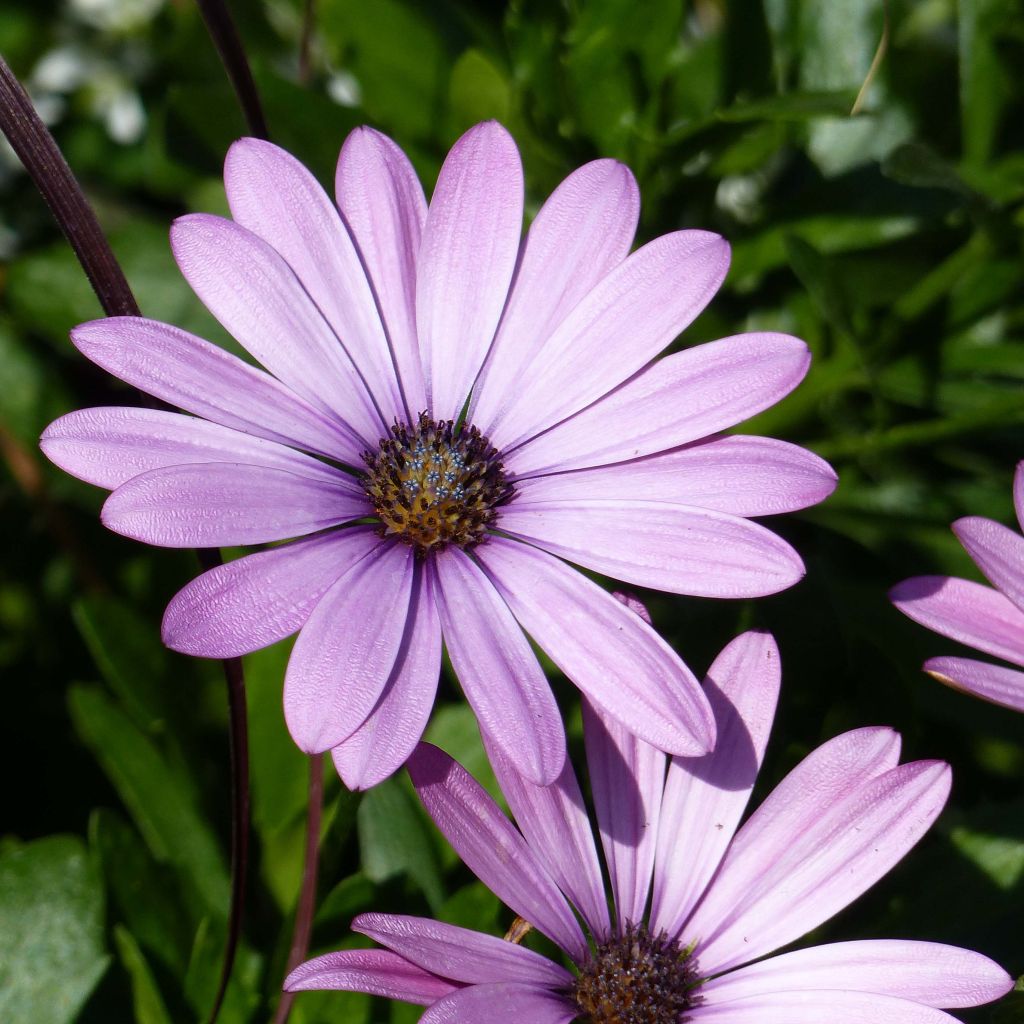

Osteospermum Summersmile Soft Violet
Osteospermum Summersmile Soft Violet - Cape Daisy
Osteospermum Summersmile Soft Violet
Cape Daisy, Blue-eyed Daisy, African Daisy
Received the plans in perfect condition. Upon receipt, they were transplanted into pots before being planted in the ground. They are developing perfectly.
Patrick, 17/05/2020
This item cannot be shipped to the selected country
Delivery charge from €5.90
Delivery to Corse prohibited
More information
Schedule delivery date,
and select date in basket
This plant carries a 6 months recovery warranty
More information
We guarantee the quality of our plants for a full growing cycle, and will replace at our expense any plant that fails to recover under normal climatic and planting conditions.
From €5.90 for pickup delivery and €6.90 for home delivery
Express home delivery from €8.90.
Delivery to Corse prohibited: UE law prohibits the import of this plant from mainland France to Corse as part of the fight against Xylella fastidiosa. Please accept our sincere apologies.
More information
Does this plant fit my garden?
Set up your Plantfit profile →
Description
Osteospermum Summersmile 'Soft Violet' is part of a new generation of highly branched and floriferous hybrids. Formerly known as Dimorphoteca or Cape Daisy this not very hardy perennial, sun-loving, flowers over a long period, even in hot weather. Its flowers resemble large daisies made up of a row of mauve petals surrounding a large yellow to brown centre. They close if there is insufficient light. This plant, often grown as an annual, tolerates heat, sea spray, drought, and poor soils.
Mostly native to South Africa, Osteospermum are perennial or annual plants closely related to Dimorphotecas and belonging, like them, to the Asteraceae family. Most of the osteospermums cultivated in gardens are hybrids of uncertain origin. They are generally very robust plants, useful for ornamental purposes in dry soils. Their preferred region in South Africa corresponds to the Atlantic coast, which has a Mediterranean climate.
Summersmile Soft Violet' is a recent variety that stands out for its floriferousness and branching habit, ideal for container gardening. It blooms from May to October, depending on the cultivation method and climate. The plant, reaching maturity in a few months, will grow to about 35 to 50 cm (14 to 20in) in all directions, forming a truly generously blooming bouquet. Its flowers are quite large compared to the size of the plant. They are a soft violet, and are carried on branched stems emerging from glossy, toothed green foliage. Usually grown as an annual in temperate climates, the plant can regrow from the stump in spring if the winter is not too cold (maximum hardiness -8°C (17.6°F)) and the soil is well-drained.
Osteospermums have become essential, as they are very willing to cover dry slopes in open ground (or containers on terraces and balconies exposed to heat) with a blanket of flowers. They can be combined in a dry garden with nepetas, shrubby salvias, verbenas, lantanas, or immortelles. They will accentuate borders and flower rockeries. They will form remarkable ground cover in a mix of colours. In flowering containers, they can be paired with bidens or Erigeron karvinskianus, for example.
Young plants measuring 5 to 10cm (2 to 4in) in cases of 5 small plugs measuring 3cm (1in) in diameter and 4cm (2in) in height. Our plants are at least eight weeks old and are strong enough to be planted in open ground.
Note: Attention, our young plug plants are professional products reserved for experienced gardeners: upon receipt, repot and store them under cover (veranda, greenhouse, cold frame) at a temperature above 14°C (57.2°F) for a few weeks before they can be planted outdoors once the risk of frost has definitively passed.
Report an error about the product description
Osteospermum Summersmile Soft Violet - Cape Daisy in pictures
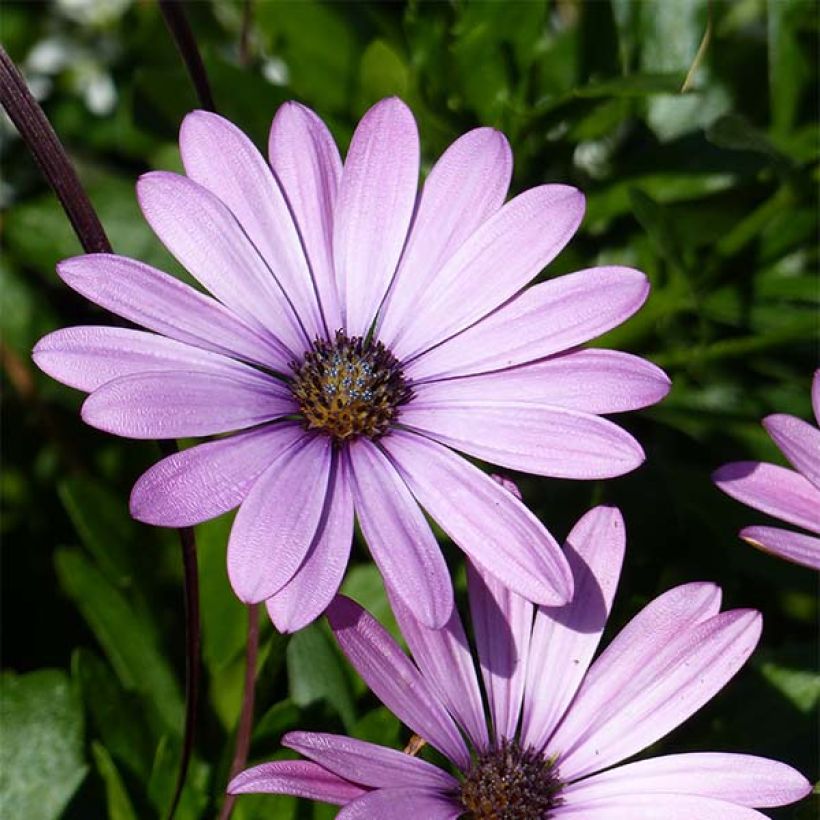

Flowering
Foliage
Plant habit
Botanical data
Osteospermum
Summersmile Soft Violet
Asteraceae
Cape Daisy, Blue-eyed Daisy, African Daisy
Cultivar or hybrid
Other Osteospermum
Planting and care
Plant your osteospermums in open ground after the last frost, in a sunny position. You can also plant them in pots placed in a sheltered position, which you will take out in May. Summersmile Soft Violet osteospermums require well-drained soil, but not necessarily very rich. Water moderately. In pots, regular watering is necessary in summer. Regularly remove faded blooms to prolong flowering. You can retain your Summersmile 'Soft Violet' osteospermums by bringing them indoors under a veranda or into a cold greenhouse in winter. They can tolerate a light frost, but can only survive the winter in the garden in a sheltered position away from severe frost.
Planting period
Intended location
Care
-
, onOrder confirmed
Reply from on Promesse de fleurs
Plug plants - Annuals
Haven't found what you were looking for?
Hardiness is the lowest winter temperature a plant can endure without suffering serious damage or even dying. However, hardiness is affected by location (a sheltered area, such as a patio), protection (winter cover) and soil type (hardiness is improved by well-drained soil).

Photo Sharing Terms & Conditions
In order to encourage gardeners to interact and share their experiences, Promesse de fleurs offers various media enabling content to be uploaded onto its Site - in particular via the ‘Photo sharing’ module.
The User agrees to refrain from:
- Posting any content that is illegal, prejudicial, insulting, racist, inciteful to hatred, revisionist, contrary to public decency, that infringes on privacy or on the privacy rights of third parties, in particular the publicity rights of persons and goods, intellectual property rights, or the right to privacy.
- Submitting content on behalf of a third party;
- Impersonate the identity of a third party and/or publish any personal information about a third party;
In general, the User undertakes to refrain from any unethical behaviour.
All Content (in particular text, comments, files, images, photos, videos, creative works, etc.), which may be subject to property or intellectual property rights, image or other private rights, shall remain the property of the User, subject to the limited rights granted by the terms of the licence granted by Promesse de fleurs as stated below. Users are at liberty to publish or not to publish such Content on the Site, notably via the ‘Photo Sharing’ facility, and accept that this Content shall be made public and freely accessible, notably on the Internet.
Users further acknowledge, undertake to have ,and guarantee that they hold all necessary rights and permissions to publish such material on the Site, in particular with regard to the legislation in force pertaining to any privacy, property, intellectual property, image, or contractual rights, or rights of any other nature. By publishing such Content on the Site, Users acknowledge accepting full liability as publishers of the Content within the meaning of the law, and grant Promesse de fleurs, free of charge, an inclusive, worldwide licence for the said Content for the entire duration of its publication, including all reproduction, representation, up/downloading, displaying, performing, transmission, and storage rights.
Users also grant permission for their name to be linked to the Content and accept that this link may not always be made available.
By engaging in posting material, Users consent to their Content becoming automatically accessible on the Internet, in particular on other sites and/or blogs and/or web pages of the Promesse de fleurs site, including in particular social pages and the Promesse de fleurs catalogue.
Users may secure the removal of entrusted content free of charge by issuing a simple request via our contact form.
The flowering period indicated on our website applies to countries and regions located in USDA zone 8 (France, the United Kingdom, Ireland, the Netherlands, etc.)
It will vary according to where you live:
- In zones 9 to 10 (Italy, Spain, Greece, etc.), flowering will occur about 2 to 4 weeks earlier.
- In zones 6 to 7 (Germany, Poland, Slovenia, and lower mountainous regions), flowering will be delayed by 2 to 3 weeks.
- In zone 5 (Central Europe, Scandinavia), blooming will be delayed by 3 to 5 weeks.
In temperate climates, pruning of spring-flowering shrubs (forsythia, spireas, etc.) should be done just after flowering.
Pruning of summer-flowering shrubs (Indian Lilac, Perovskia, etc.) can be done in winter or spring.
In cold regions as well as with frost-sensitive plants, avoid pruning too early when severe frosts may still occur.
The planting period indicated on our website applies to countries and regions located in USDA zone 8 (France, United Kingdom, Ireland, Netherlands).
It will vary according to where you live:
- In Mediterranean zones (Marseille, Madrid, Milan, etc.), autumn and winter are the best planting periods.
- In continental zones (Strasbourg, Munich, Vienna, etc.), delay planting by 2 to 3 weeks in spring and bring it forward by 2 to 4 weeks in autumn.
- In mountainous regions (the Alps, Pyrenees, Carpathians, etc.), it is best to plant in late spring (May-June) or late summer (August-September).
The harvesting period indicated on our website applies to countries and regions in USDA zone 8 (France, England, Ireland, the Netherlands).
In colder areas (Scandinavia, Poland, Austria...) fruit and vegetable harvests are likely to be delayed by 3-4 weeks.
In warmer areas (Italy, Spain, Greece, etc.), harvesting will probably take place earlier, depending on weather conditions.
The sowing periods indicated on our website apply to countries and regions within USDA Zone 8 (France, UK, Ireland, Netherlands).
In colder areas (Scandinavia, Poland, Austria...), delay any outdoor sowing by 3-4 weeks, or sow under glass.
In warmer climes (Italy, Spain, Greece, etc.), bring outdoor sowing forward by a few weeks.

































